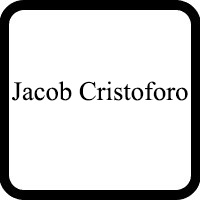Au Gres Misdemeanor Lawyer, Michigan
Sponsored Law Firm
-
 x
x

Click For More Info:
-
Jacob A. Cristoforo PLLC
P.O. Box 146 Kawkawlin, MI 48631» view mapCriminal Defense Fighting For Your Rights
If you are looking to hire a lawyer in Michigan, Jacob Cristoforo will be happy to help you. Attorney Cristoforo specializes in Criminal Defense.
800-892-7670
Not enough matches for Au Gres Misdemeanor lawyer.
Below are all Au Gres Criminal lawyers.
Jacob Anthony Cristoforo
✓ VERIFIED *Status is reviewed annually. For latest information visit hereCriminal, Divorce & Family Law, Litigation, Traffic, Misdemeanor
Jacob Cristoforo is a practicing attorney in the state of Michigan.
Gary W. Rapp
Traffic, Government, Divorce, Misdemeanor
Status: In Good Standing *Status is reviewed annually. For latest information visit here Licensed: 46 Years
Andrew Ronald Mong
Criminal
Status: In Good Standing *Status is reviewed annually. For latest information visit here
Diana R. Kessler
Family Law, Divorce & Family Law, Criminal
Status: In Good Standing *Status is reviewed annually. For latest information visit here Licensed: 35 Years
Duane L. Hadley
Real Estate, Traffic, Estate, Wrongful Termination, Criminal
Status: In Good Standing *Status is reviewed annually. For latest information visit here Licensed: 28 Years
James A. Bacarella
Family Law, Divorce & Family Law, Criminal, Accident & Injury
Status: In Good Standing *Status is reviewed annually. For latest information visit here Licensed: 33 Years
Jon C. Kaner
Traffic, Employment, Criminal
Status: In Good Standing *Status is reviewed annually. For latest information visit here Licensed: 42 Years
Keith E. Moir
Family Law, Criminal, Civil & Human Rights, Accident & Injury
Status: In Good Standing *Status is reviewed annually. For latest information visit here Licensed: 42 Years
Lisa D. Lang
Divorce & Family Law, Criminal
Status: In Good Standing *Status is reviewed annually. For latest information visit here Licensed: 30 Years
Nicole Sauvola
Business, Criminal, Family Law, Federal Trial Practice
Status: In Good Standing *Status is reviewed annually. For latest information visit here Licensed: 23 Years
 Jacob Cristoforo Kawkawlin, MI
Jacob Cristoforo Kawkawlin, MI Practice AreasExpertise
Practice AreasExpertise
